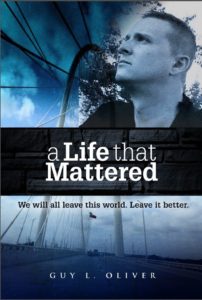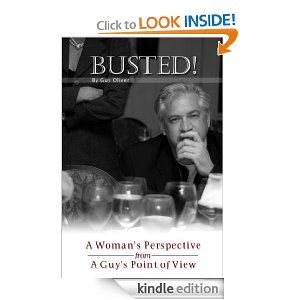“Guy? Is it true?”
“I keep asking myself that same question.”
“What happened?
“There was an accident. He didn’t survive.”
“I’m so sorry.”
“I can’t talk. I have to go.”
This conversation by Facebook IM with my friend Lacey, was the first of many that were repeated scores of times with seemingly countless individuals. The advantage of a ubiquitous communications system that enables you to reach almost anyone you know at any time of the day or night.
For me, though, in the first two years after my son’s passing, the system was a sword with two edges. It brought to me the support of friends who regularly checked on my well-being but brought with it the ability to publicly share my pain. And share it I did. Sometimes sober, but often under the liberating influence alcohol.
Sitting in a bar, not long ago with my friend Fran, we revisited that dark time in my life and he raised a question the poignant nature of which has since given me pause. He asked me simply
“Did it serve you well?”
I immediately offered a knee-jerk response suggesting that in the moment it did but that it must have been difficult for others to watch and for that I was regretful. For one of the heaviest burdens no one talks about is how, in the depths of your grief, when condolences are offered, most of us want to guard the emotional comfort of others. You say things like
“Thank you” and “It’s OK” and “That means so much to me” never daring to say the thing you’re really feeling when you look into their eyes face-to-face. You instead shout those things most often when you are alone, and with the advent of social media, you may be tempted to shout it in a medium in which everyone can see it.
In that sense, I can honestly say that for a moment it eased my suffering but, upon further reflection, I can no longer be certain that it served me well. Even so, the abuse of social media in this context is not, it seems to me, the problem. It is instead a manifestation of something much more troubling. A physical symptom of an emotional virus to which we are vulnerable in traumatic circumstances, and the symptom speaks to the larger cancer of self-destruction that metastasized to my very spirit.
Injured soldiers will beg for morphine on the battlefield. In many cases, however, the attending medic will deny their pleas because while it will certainly kill the pain, the required dosage will also kill the patient.
As I contemplate the nightfall I have described here I believe I am guilty of slowly killing myself. That the candle, which gave me value in this world, the lamp that each of us are given to light the way for ourselves and others, began to dim a little at a time with every dose of morphine I demanded. And the morphine I craved was alcohol. Lacey, I believe, said it best in a frank, retrospective exchange soon after my discussion with Fran:
“I didn’t hate the ‘outbursts’ behind the scenes, but I cringed when you were drunk and would post things publicly on Facebook. I have a hard time judging or scolding someone who is grief stricken, because ‘There but for the grace of God go I.’ I was just sad for you.
…That said, your grief turned into some pretty self-destructive behaviors.”
And one day I began to see a little of what I was doing to myself. It was the second anniversary of Tim’s accident and in atypical fashion I chose to supplant talking with listening. I wanted to listen to my inner voice that it might offer a reflection of the past with a view to moving forward to the future. I wanted to hear the voice of God that I might better understand my situation in the larger context of why we are here. More than anything I wanted to hear the voice of my son that I might feel his presence for a moment.
As the day passed I did all the right things. I held hands with my wife and watched the memorial video Rachel created. I sat with her in a quiet chapel and contemplated the life my son lived and the way he redeemed himself from a life of sloth and addiction. I wrote private, contemplative notes regarding my situation. And throughout the day I would spontaneously weep for just a moment, deep but brief, sporadic grieving that felt cleansing, healthy, and normal.
And then I came home, a little spent from the emotions I was attempting to exorcise. And I poured a drink. And then another. And then another. Just like most every night before for the previous two years.
Honesty forces me to offer that this was not an unusual circumstance prior to my son’s accident. Before that event I would frequently attempt to numb the bad feelings many of us carry around, using alcohol. The difference was desperation.
I simply could not abide the pain, and I begged for morphine.
And having spent the day deep in thought, searching for answers to questions that were unanswerable I lapsed into the anesthetizing crutch that was so familiar to me. Then, after a bit, a single thought began to surface:
“You cannot get drunk enough to make it stop. Your son has passed from this life and no amount of whiskey can change that. What will you do now?”
What I did was what I continually promised myself I would not do. I posted my thoughts—this very thought—in fact, on social media.
“I can’t get drunk enough. Somebody make it stop.”
And then I heard the voice of God in the form of a reply from a friend.
“Stop hurting yourself.”
Such a simple truth so obvious to everyone—except me. This is the simple truth that the thing I call God speaks to all of us who are fortunate enough to have loved ones in our lives during times of crisis.
“Stop hurting yourself. Everyone loves you but you and you’re killing yourself. Stop killing yourself.”
The very words I said to my son were now directed to me in a plea to understand that alcohol cannot mend the brokenness that comes from an incomprehensible loss. While no one blames you for your behavior in such a circumstance, you are eventually asked to unfetter yourself from the shackles you have unwittingly fashioned and which incarcerate you. You are eventually asked to rejoin those who love you. Those who love you as you once were—knowing that you are changed forever but that the change need not include the willful consumption of the literal and figurative poison that is killing you.
I examined my life and craved the light.


